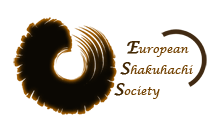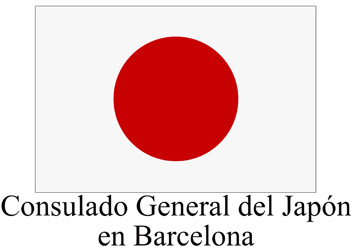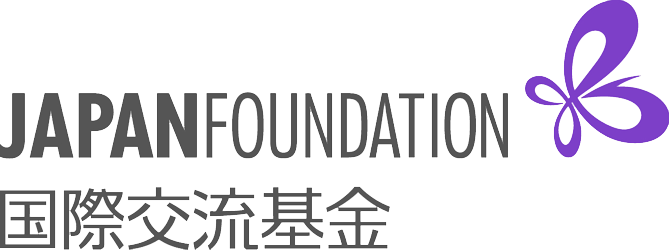BARCELONA 2016 SUMMER SCHOOL & FESTIVAL – CELEBRATING 10 YEARS OF THE EUROPEAN SHAKUHACHI SOCIETY
The ESS started its activities with staging the 1st Pan-European Shakuhachi event with its Summer School, a four-day event held in July 2006 in London.
Thereafter, the ESS has collaborated with various local shakuhachi groups in Europe to hold annual Summer Schools and workshops around Europe aiming to be an umbrella organisation to assist and facilitate collaborations and communications between individual shakuhachi players and associations present in Europe.
Ten years later we have a growing, diverse and active community in Europe with 2016 being a case in point with a variety of events, be it schools, workshops, master-classes or festivals, on offer throughout Europe.
Barcelona 2016 will continue the ESS Summer School tradition – the exciting mix of classes, workshops, talks and concerts as well as covering traditional to contemporary aspects of the shakuhachi – but it being a special year for the ESS, we will offer an even more wide ranging school and festival and there will also be some special events, details of which will be announced during March. So, stay tuned for updates!

BARCELONA 2016 PROGRAM OVERVIEW
It is a pleasure to announce that this year we will have two special guests from Japan – Zenyoji Keisuke and Kakizakai Kaoru – both are highly accomplished, internationally renowned players, performers and teachers.
Zenyoji Keisuke will be teaching honkyoku, including the rarely taught pieces of the Kinpū-ryū Nesaza-ha repertoire, as well as Kinko-ryū sankyoku.
Kakizakai Kaoru will focus on honkyoku of the Kokusai Shakuhachi Kenshukan, the lineage of Yokoyama Katsuya.
Additionally, there will be professional teachers, performers and composers from throughout Europe representing a wide spectrum of lineages, styles and approaches to the shakuhachi. Participants will have the opportunity to encounter lineages including Kinko, Tozan, Nezasa, Chikuho and Zensabo, as well as a wide range of genres such as sankyoku, shinkyoku and honkyoku. Individual lessons will also be available from the shakuhachi teachers.
Contemporary music will also occupy an important place at Barcelona 2016, with workshops covering a wide spectrum ranging from composing for shakuhachi, the integration of shakuhachi with live electronics and shakuhachi & improvisation, again led by professional composers, composer/performers and improvisers. This year’s concerts which will take each evening will reflect this by including performances of new compositions for shakuhachi with participants having the opportunity to be an integral part in the public presentation of this new music.
Koto and shamisen, of course, will also be part of the program with professional players offering expert tuition to interested participants. In addition to the sankyoku and shinkyoku classes, there will be opportunities to take individual lessons with the koto and shamisen teachers to further develop ensemble performance skills.
Fundamental to the shakuhachi is its connection to the body of the performer. Workshops addressing ideas of breathing and body posture in relation to playing the shakuhachi will enhance the participants’ understanding and relationship to their instrument. This is also of particular interest for those wishing to explore the field of shakuhachi and meditation.
Did you ever wonder about the construction of the shakuhachi? If so, there will be a workshop giving the opportunity to the Summer School participants to gain an insight into the making process and trying to craft a jinashi shakuhachi for themselves. (More details about the making workshop will be announced in due course.)
TEACHING LEVELS:
In general, teaching will be offered at various levels: beginners, elementary,intermediate and for advanced players. For those who have never played the shakuhachi before and want to discover this amazing instrument but who cannot commit to 4 days full-time, an “introductory” level will also be provided. The “introduction” participants can tailor their participation to a single morning, or to two mornings or to all four mornings depending on their individual circumstances and group numbers. All other participants will study for the whole four days, with the program being divided into 2 two-day blocs to allow participants to explore the wide range of classes and styles available.
Finally, last but not least, a Summer School is always not only a place to encounter a wide-ranging array of classes and performances, but also a place to mingle with other shakuhachi enthusiasts at all levels from across Europe and to create new connections and friendships among the community of players and work together to celebrate and share the excitement of this deceptively simple, but enormously complex and rich, bamboo flute.
See you in Barcelona!
General Coordination: Horacio Curti
Contact: barcelona2016[at]shakuhachisociety[dot]eu
Logistics and production: Stella Maris “Hawwa” Morales
Communication, website and videos: Thorsten Knaub





